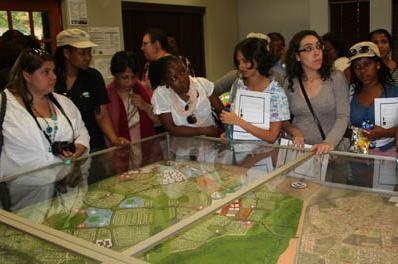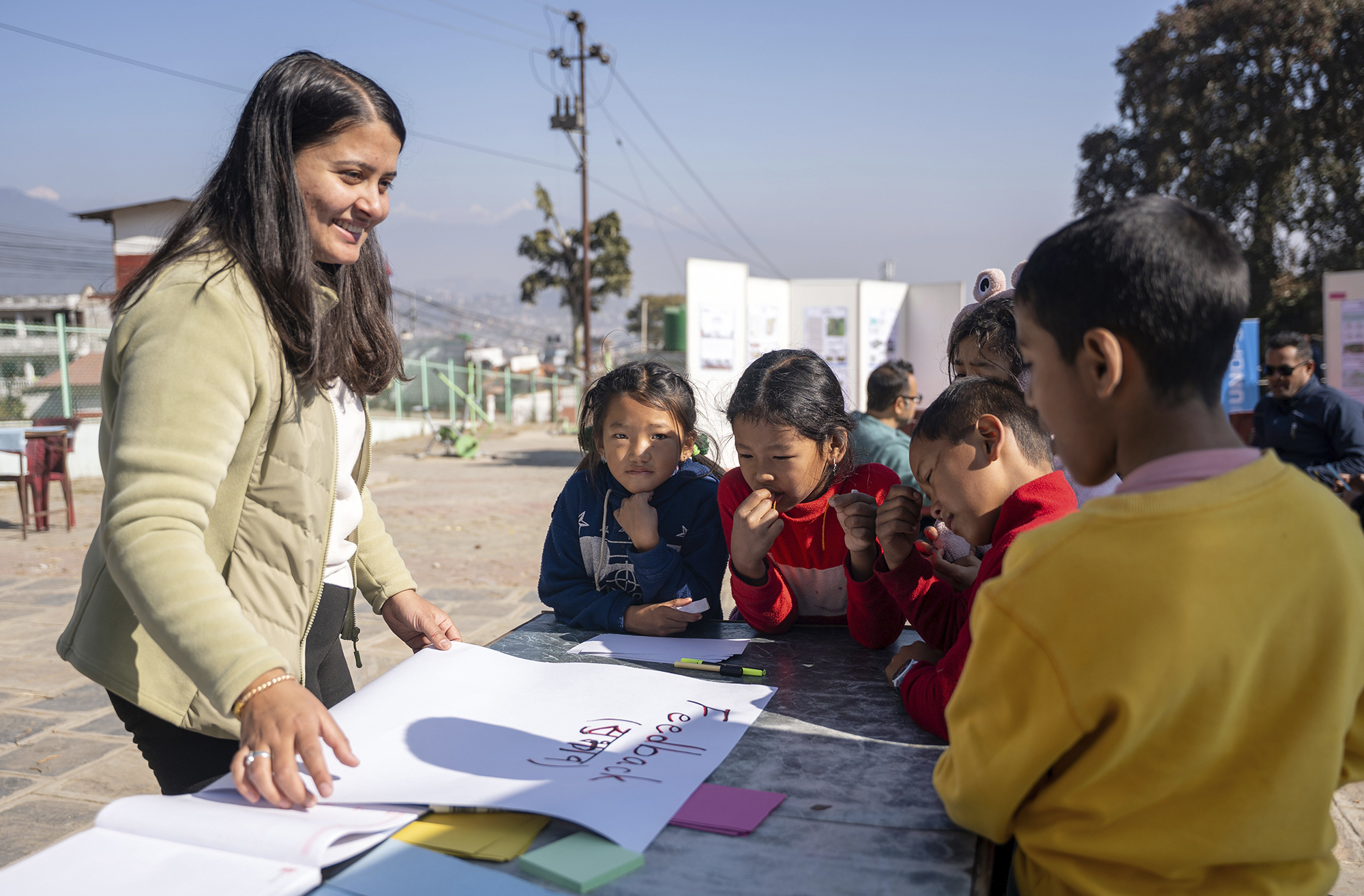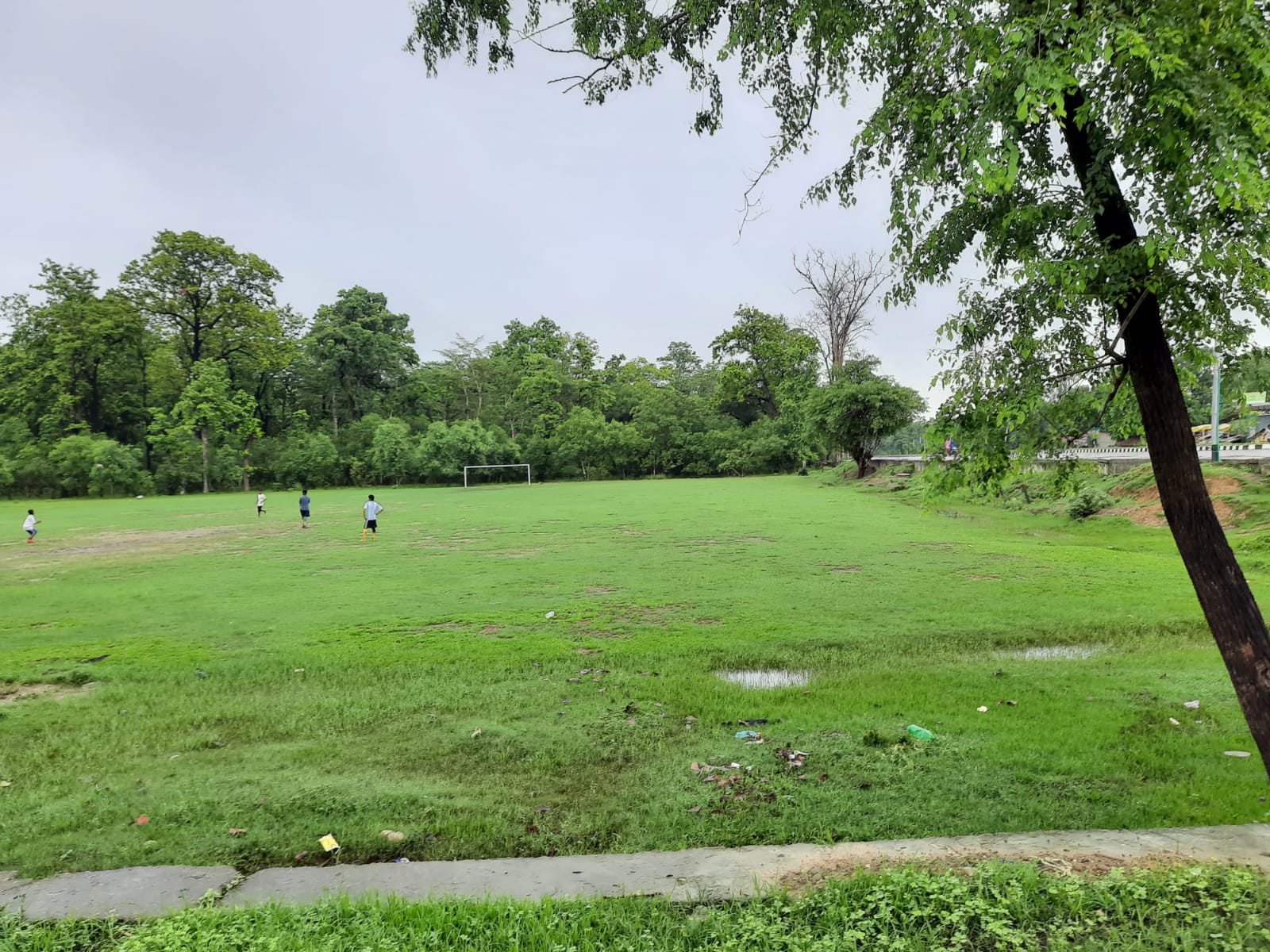-- India, Brazil and South Africa are actively addressing the challenges of urbanisation
-- The IBSA Working Group on Human Settlements, with support from WBI and Cities Alliance, convened a high-level workshop among national policymakers, city managers, urban practitioners, academics and slum dwellers’ organisations.
-- During the event, India, Brazil and South Africa agreed to launch by early 2012 a virtual debate series on financing slum upgrading, resettlement policies, monitoring and evaluation of national programmes, and scaling up capacity through national programmes.

Supported by the Cities Alliance and the World Bank Institute, IBSA offers a cooperation platform to address the challenge of slums in India, Brazil and South Africa. Photo: World Bank Institute
India, Brazil, and South Africa share common development patterns, economically, socially, and politically, and together can not only learn from each others’ successes and challenges, but also become major players in the geo-political space.
Brazil has already achieved a high level of urbanisation, tested different policies and approaches to address the slum challenge, and therefore can share many lessons of what has worked, what did not work, and why, it still struggles to address the extreme inequality between its rich and poor; it still has 44 million people living with inadequate urban housing or utilities.
India is one of the most rapidly growing economies in the world and has a large urban population although its urbanisation level is relatively low. Faced with the challenge of improving the governance framework and service levels in cities, India has formulated groundbreaking urban policies in the last decade but despite these initiatives, its almost 93 million people living in slums will probably double in the next twenty years.
South Africa has made significant progress in designing progressive policies and intergovernmental fiscal transfer systems to address apartheid’s legacy of inequality. Although South Africa has delivered formal housing to 3 million households since the fall of apartheid, it recognises that there is a lot still to be done to address the challenge of nearly 12 million people living in shacks or precarious shelters.
Addressing the Challenge of Slums
All three countries are actively addressing these challenges. In Brazil , investments from PAC-Favela for upgrading slums totaled $11.5 billion in 2007-2010. The government’s “Minha Casa, Minha Vida”, or “My House, My Life” program built 1 million new houses between 2009 and 2010. The government plans to invest about $64 billion in housing and slum upgrading, targeting the construction of 2 million new houses, 60% of which will be for low-income families.
India, the government is embarking on phase 2 of a major national initiative to improve urban living conditions. It seeks to consolidate the impacts of the national urban flagship program – JNNURM targeting urban poverty, infrastructure, and local government policies, and has recently announced a new national flagship program - “Rajiv Awas Yojana” or RAY for the Urban Poor. RAY aims at supporting states to provide security of tenure to slum dwellers, and finance city-wide slum free strategies.
South Africa recognised that rigid subsidized housing programs of the past were contributing to spatially inefficient and unequal cities. It switched gears and, as a result, recently launched a $3 billion investment program that will provide in-situ basic services, tenure security and livelihood support to 400,000 families of shack dwellers by 2014.
IBSA – Helping 100 Million by 2020
Launched in 2007, as one of the thematic platforms of the IBSA Trilateral Agreement the Human Settlement Group is committed to improving the lives of at least 100 million slum dwellers in the three member countries by 2020.
IBSA-HS approached the World Bank Institute (WBI) and Cities Alliance (CA) to help strengthen and facilitate the knowledge brokering mechanisms among the three countries. IBSA Human Settlement Group offers a unique South-South cooperation platform to compare different approaches and draw lessons on national policies and programs.
The three countries have continually raised the need to improve knowledge and skills in the area of upgrading settlements and relevant areas. This would help these institutions to design appropriate policies, programs, and corresponding guidelines and institutional arrangements to contribute to their development goals.
The “Right to the City” In October 2011 in Pretoria, South Africa, the IBSA Working Group on Human Settlements, with support from WBI and CA convened a high-level workshop among national policymakers, city managers, urban practitioners, academics and slum dwellers’ organisations around the topic: “What Kind of Urbanization?
Addressing the Challenge of Slums and Including the Poor into the Urban Fabric.” During the workshop, participants highlighted innovations and challenges for ensuring that the urban poor have the same rights to the city they live in as any other citizens by means of scaling up slum improvement initiatives, ensuring land availability, infrastructure and tenure security, and empowering local communities.
The workshop also launched the “IBSA-Human Settlements Knowledge Exchange virtual platform to support continuous discussion and peer learning among members. The online space was created within WBI’s Inclusive Cities web site, for real-time discussions, especially on issues related to slum upgrading and affordable housing.
During the event, India, Brazil and South Africa agreed to launch by early 2012 a virtual debate series on financing slum upgrading, resettlement policies, monitoring and evaluation of national programs, and scaling up capacity through national programs. It was also agreed that the next IBSA Human Settlements Workshop will be held in India in late 2012.
On the long-term, the three countries agreed to strengthen the institutional framework of IBSA Human Settlements by partnering with ‘anchor institutions’ in each country to leverage the capacity of the group and put in place a long-term strategy for the group. This news feature originally appeared on the website of the World Bank Institute.




